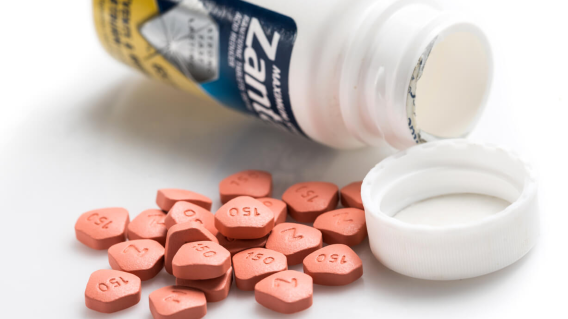First Zantac Lawsuit Case Reaches $500,000 Settlement
Editors carefully fact-check all Drugwatch.com content for accuracy and quality.
Drugwatch.com has a stringent fact-checking process. It starts with our strict sourcing guidelines.
We only gather information from credible sources. This includes peer-reviewed medical journals, reputable media outlets, government reports, court records and interviews with qualified experts.

Joseph Bayer, the plaintiff in the first Zantac (ranitidine) trial, has voluntarily dismissed his own case.
Reportedly, the dismissal came shortly before trial because of a settlement that he reached with some generic drugmakers. Reports indicate that in the months leading up to the trial, the generic drug makers each contributed to a settlement of more than $500,000 in the Bayer case.
Despite dropping the case at this time, Bayer can file again within a year according to his lawyer.
GlaxoSmithKline Was Not Part of the Settlement
GlaxoSmithKline was not a part of the settlement negotiations and celebrated the dismissal as a win.
“GSK did not settle Mr. Bayer’s claim and has not paid anything in exchange for the voluntary dismissal,” the drug giant said in an Aug. 16 statement. “GSK welcomes this outcome and believes the dismissal of Mr. Bayer’s case is the correct result.”
After developing esophageal cancer, Bayer filed his Zantac lawsuit in Illinois state court against the drug’s makers, including Teva Pharmaceuticals, Sun Pharmaceuticals, Perrigo Co. and Dr. Reddy’s Laboratories Inc.
GSK still faces about 3,000 Zantac lawsuits in state and federal court alleging the drug causes cancer. The company also faces multiple class actions seeking compensation or economic injuries. Plaintiffs say drugmakers have known for years about the potential cancer risk but failed to inform the public and didn’t stop selling it.
Plaintiffs: Science Supports Zantac Can Cause Cancer
Science shows that Zantac degrades into NDMA, a toxic chemical that is a probable carcinogen, according to plaintiffs, especially in hot and humid conditions.
While there hasn’t been definitive evidence showing that Zantac can cause cancer, studies as far back as the early 1980s flagged a possible connection between ranitidine, the drug’s active ingredient, and NDMA formation. Since then, some studies have linked the drug to various cancers.
Recalls for Zantac and generic ranitidine started in 2019 after the online pharmacy Valisure discovered high levels of NDMA in Zantac samples. By 2020, ranitidine was no longer available for purchase in the U.S. market and drugmakers started selling Zantac 360, formulated without ranitidine.
GSK Stands Behind Zantac
GSK stands firmly by the product and denies that the drug poses an increased cancer risk.
“The overwhelming weight of the scientific evidence supports the conclusion that there is no increased cancer risk associated with the use of ranitidine. GSK will continue to vigorously defend itself against all claims alleging otherwise,” the drugmaker said.
All generic drugmakers have since been dismissed from all federal lawsuits, leaving brand name manufacturers GSK, Pfizer and Boehringer Ingelheim named as defendants.
The first Zantac bellwether trial in multidistrict litigation in Florida is slated for summer 2023. Another group of cases in California will have its first bellwether in May 2023.